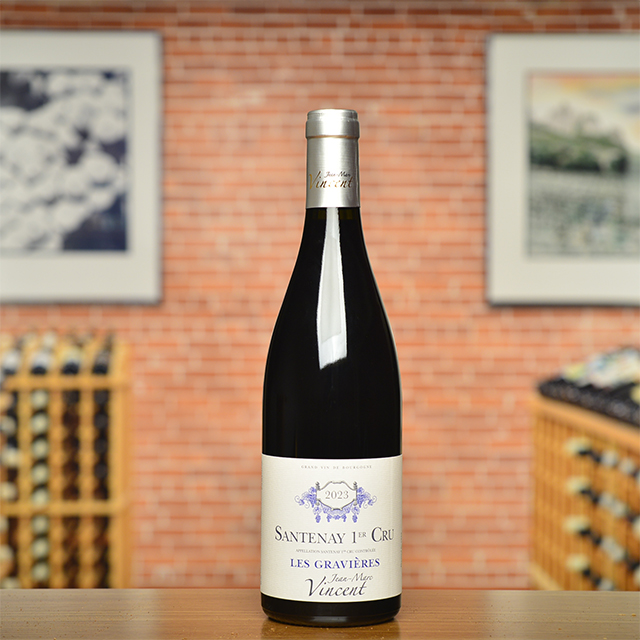Notify me
2023 Valle d’Itria Bianco “Faraone”
I Pástini
A crisp white wine from a hot climate almost seems like a magical impossibility, yet here’s one, and a delicious one at that. Made from Verdeca, which is native to sun-baked Puglia in southern Italy, I Pástini’s Faraone has a briny nose, like a freshly shucked oyster spritzed with lemon. In the glass it’s refreshingly clean with a hint of mandarin, followed by a beguiling finish that draws you irresistibly toward the next sip.
—Dustin Soiseth
| Wine Type: | white |
| Vintage: | 2023 |
| Bottle Size: | 750mL |
| Blend: | Verdeca |
| Appellation: | Valle d’Itria IGP |
| Country: | Italy |
| Region: | Puglia |
| Producer: | I Pástini |
| Winemaker: | Gianni Carparelli |
| Vineyard: | 3 ha, planted in 2001 |
| Soil: | Red clay, limestone |
| Aging: | Aged in stainless steel tanks for 5 to 6 months |
| Farming: | Organic (certified) |
| Alcohol: | 12% |
More from this Producer or Region

2024 Locorotondo Bianco “Antico”
Italy | Puglia
Open this alongside a bowl of fennel taralli, the donut-shaped Puglian cracker that has become my go-to aperitivo snack.

2024 Valle d’Itria Minutolo “Rampone”
Italy | Puglia
December Club Bianco ~ Crafted from the local variety Minutolo, Pástini’s Rampone preserves lip-smacking acidity and low alcohol despite the baking-hot Puglian summers

2024 Valle d’Itria Bianco “Faraone”
Italy | Puglia
A crisp white wine from a hot climate almost seems like a magical impossibility, yet here’s one, and a delicious one at that.

2024 Valle d’Itria Rosato “Le Rotaie”
Italy | Puglia
A delicious aperitivo, it can seamlessly pair with anything you throw its way.

2024 Valle d’Itria Spumante Brut
Italy | Puglia
Verdeca, a specialty around the town of Locorotondo, stars in this bottling that drinks like a southern Prosecco: light, crisp, and citrusy, with a playful bead.
 /
/
About The Producer
I Pástini
I Pástini is a small, family-run winery in the Valle d’Itria in eastern central Puglia. Founded by Gianni Carparelli and his father Donato, they grow three local white grapes, Verdeca, Bianco d’Alessano, and Minutolo, and the local red grape, Susumaniello, on land their ancestors worked: a beautiful limestone plateau overlooking the Adriatic Sea that is co-planted to ancient, (multi-millennia old!), olive groves.
After vinifying their wines in a neighbor’s cantina for a number of years they built their own winery and cellars, which came online in 2012. They are currently nearing the end of their organic conversion in the vineyards and will be certified organic starting with the 2019 vintage.
About The Region
Puglia

Puglia is Italy’s second most prolific wine-producing region (after the Veneto) and for decades was known as a source of bulk wine. But today, the heel of the boot is more than ever focused on quality, as ambitious growers seek to take advantage of the area's abundant natural riches to produce wines of character and identity. The hot, dry climate and marine influence from the long Adriatic coastline predispose Puglia to growing high-quality fruit, while a wealth of fascinating indigenous grape varieties thrive in these conditions. Changing fashion and a growing respect for the region's mostly calcareous terroirs have breathed fresh air into the Puglian wine scene, and with more than thirty distinct appellations, it is home to a tremendous variety of styles.
While the region is best known for inky, concentrated reds from grapes such as Primitivo and Negroamaro, the first KLWM Puglian imports are in fact white wines—aromatic charmers made from native varieties including Verdeca and the rare Minutolo. They hail from central Puglia’s Valle d’Itria, a plateau that shares a relatively flat topography and limestone soils with the Salento peninsula in the south. The north, in contrast, is hillier and features grapes more common to southern and central Italy including Montepulciano, Sangiovese, and Trebbiano.
Puglian wines are the product of intense southern sunshine and an ancient history of viticulture. With other local specialties including olive oil and burrata, the region has enormous potential for delicious combinations.
More from Puglia or Italy
2023 Salina Malvasia “Abissale”
Vignedimare Italy | Sicily
2018 Valpolicella Classico Superiore
Giuseppe Quintarelli Italy | Veneto
2022 Toscana Rosso “Bandinello”
Villa di Geggiano Italy | Tuscany
2020 Friuli Colli Orientali Refosco Peduncolo Rosso “Morus Nigra”
Vignai da Duline Italy | Friuli
2024 Bardolino “Le Fontane”
Corte Gardoni Italy | Veneto
2024 Valle d’Itria Spumante Brut
I Pástini Italy | Puglia
2024 Vino Rosso
Tintero Italy | Piedmont
2024 Locorotondo Bianco “Antico”
I Pástini Italy | Puglia
2024 Valle d’Itria Minutolo “Rampone”
I Pástini Italy | Puglia
2024 Valle d’Aosta Petite Arvine
Château Feuillet Italy | Valle d’Aosta
2024 Valle d’Itria Bianco “Faraone”
I Pástini Italy | Puglia
2024 Valle d’Itria Rosato “Le Rotaie”
I Pástini Italy | Puglia
2023 Salina Malvasia “Abissale”
Vignedimare Italy | Sicily
2018 Valpolicella Classico Superiore
Giuseppe Quintarelli Italy | Veneto
2022 Toscana Rosso “Bandinello”
Villa di Geggiano Italy | Tuscany
2020 Friuli Colli Orientali Refosco Peduncolo Rosso “Morus Nigra”
Vignai da Duline Italy | Friuli
2024 Bardolino “Le Fontane”
Corte Gardoni Italy | Veneto
2024 Valle d’Itria Spumante Brut
I Pástini Italy | Puglia
2024 Vino Rosso
Tintero Italy | Piedmont
2024 Locorotondo Bianco “Antico”
I Pástini Italy | Puglia
2024 Valle d’Itria Minutolo “Rampone”
I Pástini Italy | Puglia
2024 Valle d’Aosta Petite Arvine
Château Feuillet Italy | Valle d’Aosta
2024 Valle d’Itria Bianco “Faraone”
I Pástini Italy | Puglia
2024 Valle d’Itria Rosato “Le Rotaie”
I Pástini Italy | Puglia
Kermit once said...

Kermit once said...
You don’t have to be rich to cellar a great wine.














